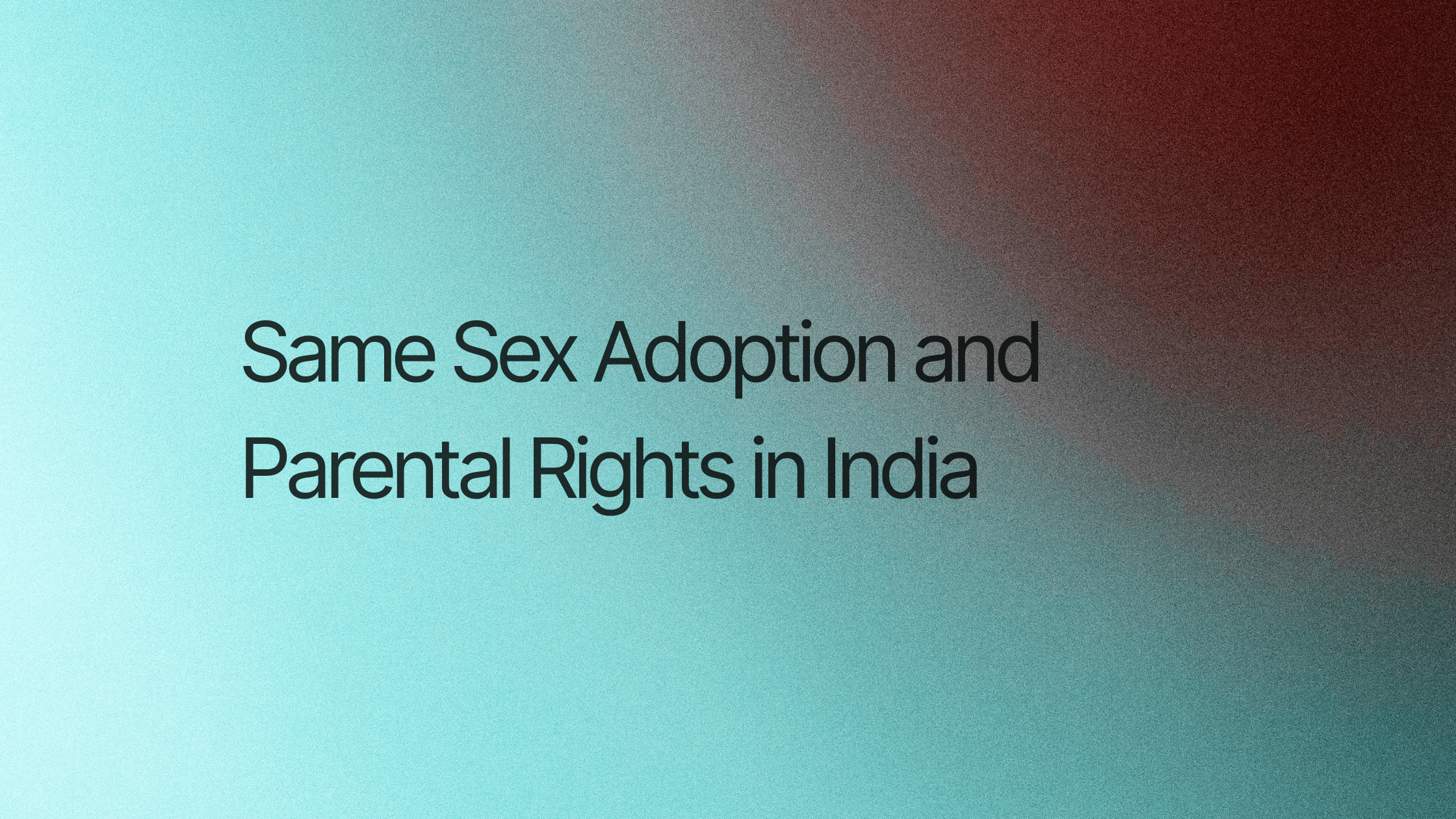In India, the Lesbian, Gay, Bisexual, Transgender, and Queer (LGBTQ) community constitutes a sexual minority that faces widespread discrimination regarding their legal and social identity. This discrimination extends to their inability to adopt children, a fundamental human right recognized in international jurisprudence. Despite the growing global recognition of LGBTQ+ rights, same-sex couples in India are prohibited from adoption due to the country’s binary understanding of gender roles, which directly contravenes Articles 14, 15, and 21 of the Indian Constitution.
Legal Challenges to LGBTQ+ Adoption Rights
India’s adoption laws, such as the Juvenile Justice Act, 2015, and the Hindu Adoptions and Maintenance Act, 1956, reflect systemic biases against same-sex couples. These laws require prospective adoptive parents to meet marital criteria that same-sex couples cannot fulfill due to the lack of legal recognition for their relationships.
Key obstacles include:
- Juvenile Justice Act, 2015: Adoption eligibility requires a stable two-year marital relationship, excluding same-sex couples.
- Hindu Adoptions and Maintenance Act, 1956: Uses terms like "husband" and "wife," inherently excluding same-sex couples and third-gender individuals.
- Surrogacy Bill, 2021: Defines a "couple" as a legally married man and woman, denying same-sex couples access to surrogacy.
Even progressive legislation like the Transgender Persons (Protection of Rights) Act, 2019, fails to address adoption rights, perpetuating inequalities for the LGBTQ+ community.
Constitutional Provisions and the Struggle for Equality
Articles 14 and 21 of the Indian Constitution guarantee equality before the law and the right to dignity, privacy, and autonomy. The Navtej Singh Johar judgment of 2018, which decriminalized consensual same-sex relationships, laid the foundation for addressing discrimination. However, LGBTQ+ couples continue to face barriers to adoption, leaving millions of orphans in India without the possibility of being raised in loving homes by same-sex couples.
Role of AI in Transforming LGBTQ+ Adoption Rights
AI technology, particularly LegalTech AI solutions, offers immense potential to address systemic challenges and advocate for equal adoption rights for the LGBTQ+ community in India. Tools like Lawsimpl.AI can help bridge the gap between discriminatory laws and constitutional principles by providing actionable insights and support to policymakers, legal professionals, and activists.
-
Legal Research and Advocacy
Legal AI tools can analyze extensive case law and legislative documents, providing advocacy groups with evidence-based arguments for reform. By identifying gaps in laws and patterns in judicial rulings, AI can empower lawyers to build stronger cases for LGBTQ+ rights. -
Public Awareness Campaigns
AI-powered chatbots and content-generation tools can create awareness campaigns to educate the public about LGBTQ+ adoption rights. These tools challenge misconceptions, promote inclusivity, and garner support for legal reforms. -
Personalized Support for LGBTQ+ Parents
AI platforms can guide prospective LGBTQ+ parents through the adoption process, providing tailored information on legal requirements, best practices, and emotional support. Additionally, AI can connect individuals with peer networks, fostering a sense of community. -
Data-Driven Policymaking
Legal AI solutions can analyze social and legal trends, providing policymakers with data-driven insights to draft inclusive laws. By assessing public sentiment and adoption trends, AI can highlight the urgency of addressing LGBTQ+ adoption rights. -
Court Case Assistance
AI tools can assist in drafting legal documents, managing case files, and automating research processes. This enables lawyers to present robust arguments for LGBTQ+ adoption rights more efficiently. -
Reducing Bias in Adoption Processes
AI tools can standardize decision-making processes, ensuring adoption assessments focus solely on the best interests of the child. By identifying and mitigating biases, AI can create a more equitable system for LGBTQ+ prospective parents.
Conclusion
India’s LGBTQ+ community faces significant barriers to adopting children due to outdated legal frameworks and societal prejudices. Although constitutional provisions guarantee equality and dignity, discriminatory laws and policies persist. Addressing these challenges requires continuous advocacy, education, and reforms to create an inclusive society.
AI-powered LegalTech solutions like Lawsimpl.AI can play a pivotal role in this transformation. By leveraging AI for legal research, advocacy, and policymaking, India can move closer to ensuring that every child, regardless of their adoptive parent's sexual orientation, has the opportunity to grow up in a safe and nurturing home.
The journey toward inclusive adoption rights is long, but with the combined efforts of technology and human advocacy, it is possible to achieve equality for all.
